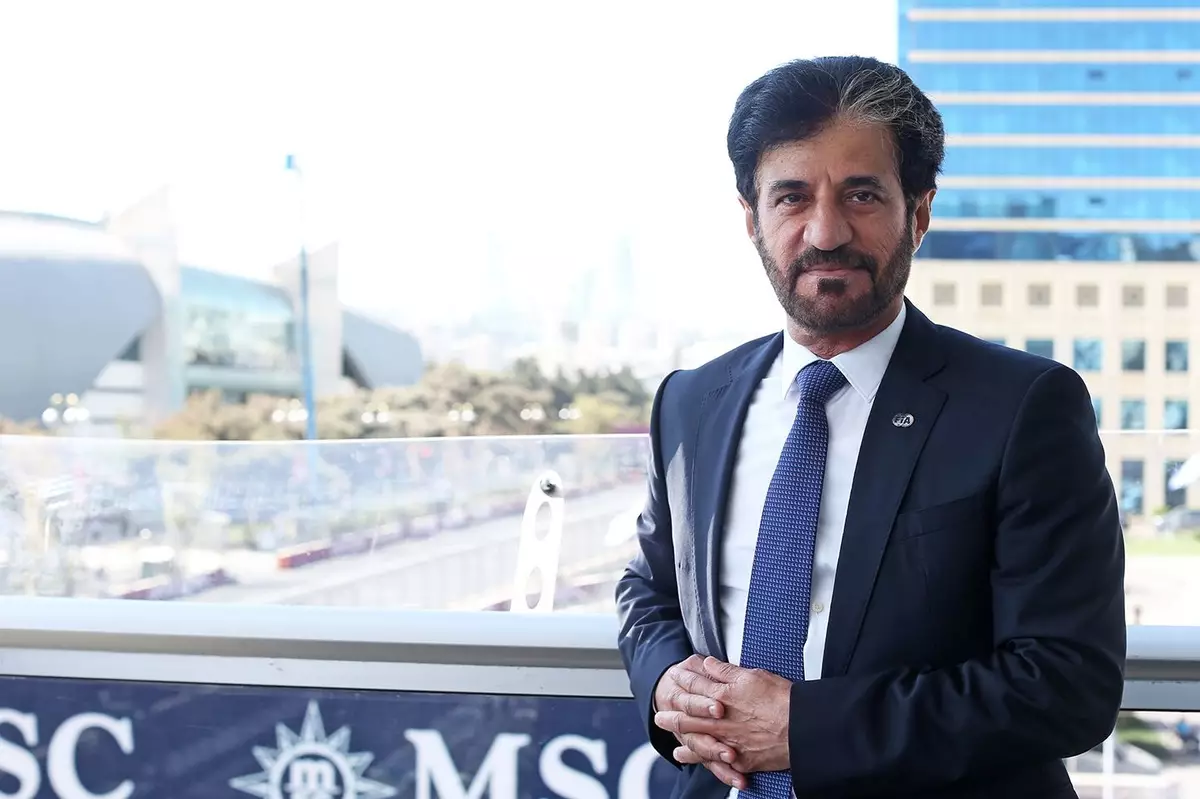In the highly scrutinized world of motorsport, the intersection between media coverage and the actions of governing bodies often gives rise to tensions. Recently, FIA President Mohammed Ben Sulayem voiced his frustrations regarding the British media’s treatment of both himself and prominent drivers, echoing sentiments expressed by renowned designer Adrian Newey. This discourse raises pertinent questions about the roles and responsibilities of media entities in shaping narratives within the sporting arena and the perceived fairness of their coverage.
Newey’s commentary on the “demonization” of drivers like Max Verstappen and former Red Bull standout Sebastian Vettel sheds light on a broader issue regarding media bias. His observations serve as a catalyst for addressing the allegations of unfair treatment not just of drivers but also of officials like Ben Sulayem. In the competitive atmosphere of Formula 1 and motorsport alike, media scrutiny can heavily influence public perception—an influence that Ben Sulayem claims has been wielded against him unfairly.
Ben Sulayem’s assertion that he has been subject to an unjust campaign by the British press reflects a deeper struggle within sports governance. His declaration that the media has “convicted” him illustrates a pervasive issue: the potential for media narratives to overshadow facts and undermine the credibility of leaders in sports organizations. Such intense scrutiny can lead to a climate of distrust between media representatives and sporting authorities. It’s essential for the media to maintain a fine balance between responsible reporting and sensationalism, as failure to do so can jeopardize the integrity of the sport as a whole.
During interviews, Ben Sulayem emphasized an independence that he believes sets the FIA apart. The statement that the media lacks “a vote” points to his desire to remind journalists and audiences that the FIA is led by its members and not by public opinion or media headlines. This approach seemingly seeks to encapsulate the notion that while media coverage is vital, it should not dictate the governance or decision-making of sporting federations.
Eyeing re-election, Ben Sulayem’s focus remains steadfast on restoring and improving the FIA’s stature from the time he took office in 2021. Balancing transparency, efficiency, and collaboration with member clubs are significant objectives as he aims to reshape how the FIA operates. The reflections on the enhanced functionality of FIA processes signify a commitment to harnessing internal strengths, leading to improved delivery and member satisfaction.
Yet, this journey is fraught with challenges. While Ben Sulayem claims the FIA is in a healthier state, external perceptions can take a considerable time to shift. The previous administration’s legacy, combined with current issues such as sustainability and safety, continues to haunt the federation. Ben Sulayem’s call to “go back to business” suggests a desire to transcend controversies and focus on proactive solutions—an ambitious initiative that requires unwavering resolve amid external pressures.
The relationship between the FIA and the media should ideally foster constructive dialogue rather than antagonism. Addressing Ben Sulayem’s sentiments, it is critical for both parties to engage in conversations that prioritize the sport’s progress, offering constructive criticism rather than leaning towards punitive narratives. The acknowledgment that “life goes on” post-critique allows for the opportunity to evolve and reassess motivations—enhancing communication channels between governing bodies and the media.
For Ben Sulayem, the path forward involves not just responding to media narratives but also actively shaping a vision for the future of motorsport governance. With ongoing efforts to address the critiques leveled against him, he seems to encourage stakeholders, including drivers, teams, and media outlets, to collaborate for the greater good of motorsport. His resolve to stoke a democratic environment highlights an essential component of robust governance. Engaging in dialogue and welcoming competition for leadership may offer a fresh perspective.
In this evolving landscape of motorsport, the intersection of media scrutiny and organizational leadership will only continue to intensify. Mohammed Ben Sulayem’s criticisms raise essential points about the responsibility media outlets bear in reporting fair and balanced narratives. Going forward, the challenge lies in fostering an environment where sport, media, and governance coexist collaboratively—ensuring the enrichment of motorsport rather than allowing it to become a battleground for narratives.
Ultimately, a united front, guided by mutual respect and common goals, is necessary for fostering a healthy ecosystem in the world of motorsports, inviting dialogue, innovation, and resilience from all involved. Ben Sulayem’s presidency could serve as a pivotal moment for the FIA, if navigated wisely, to foster a more symbiotic relationship with the media, ultimately benefiting the sport and its diverse stakeholders.


Leave a Reply